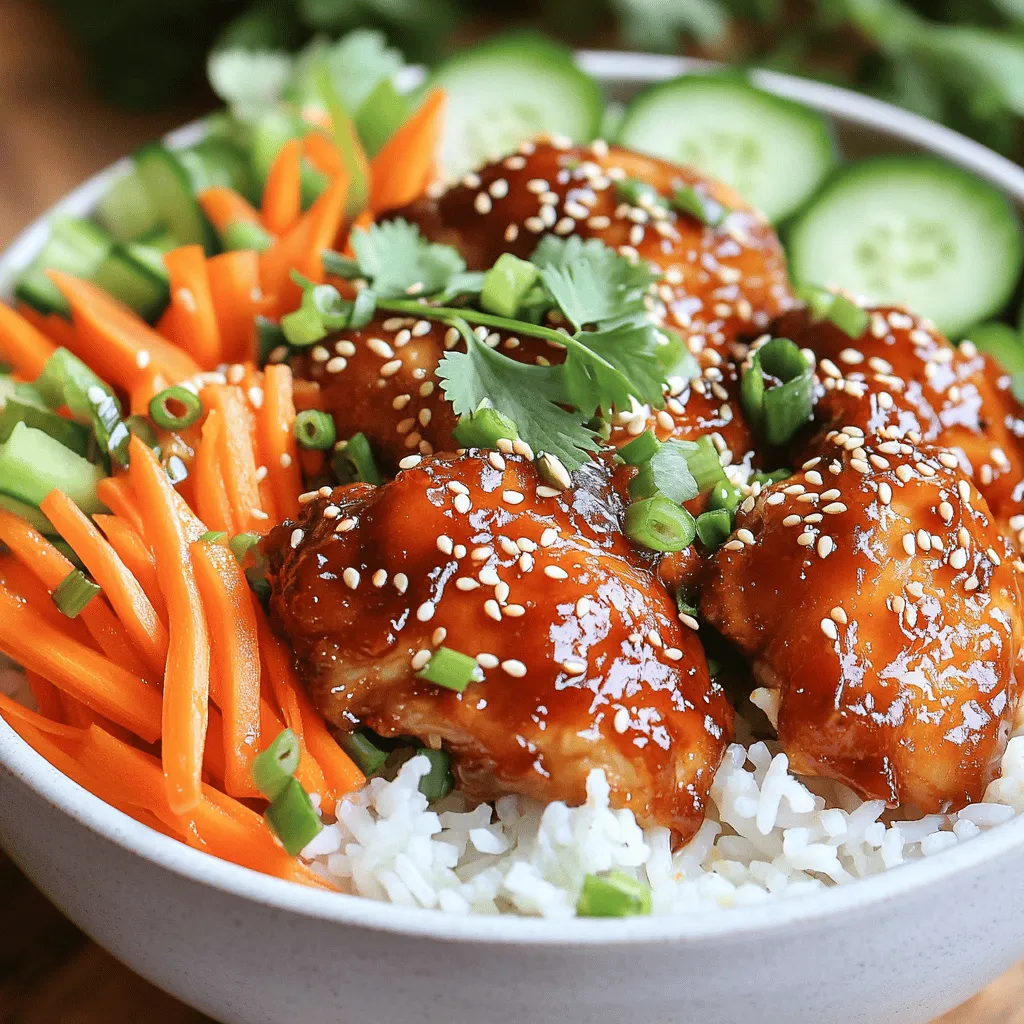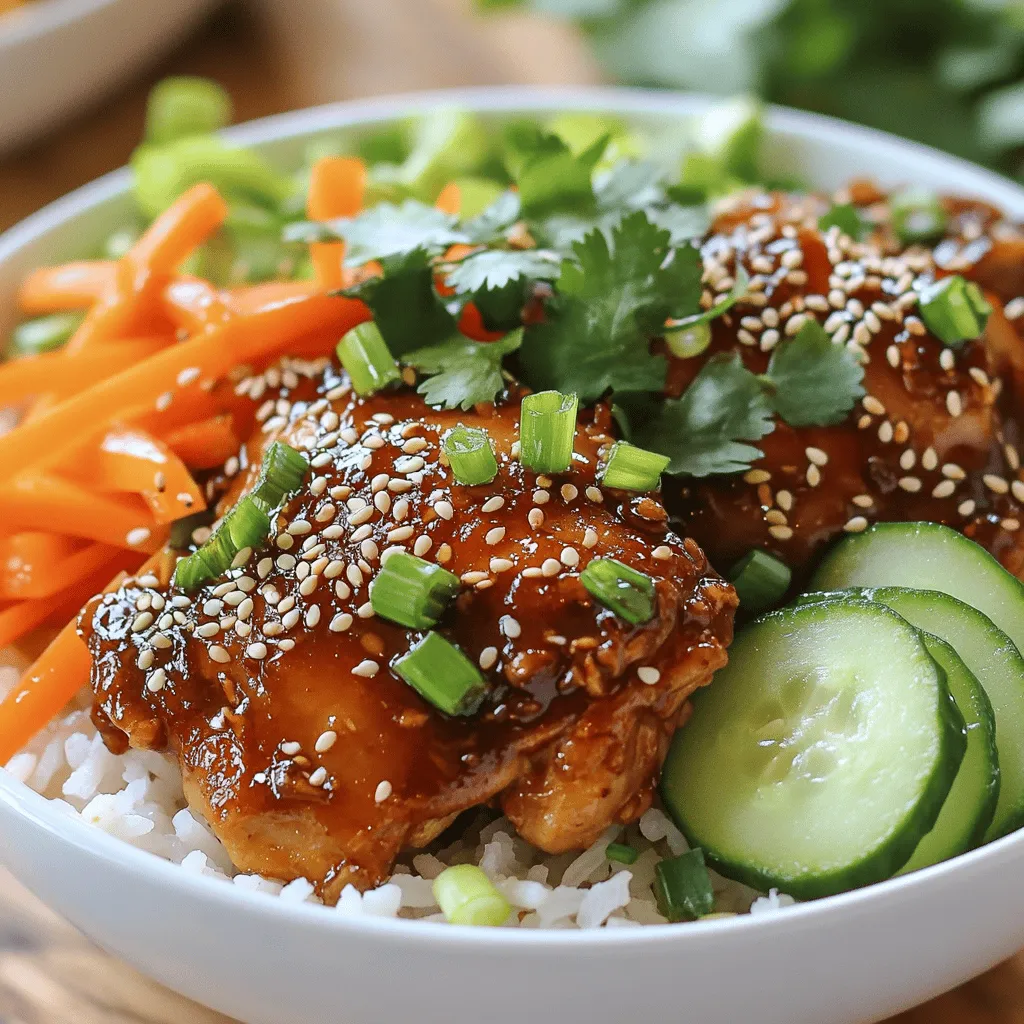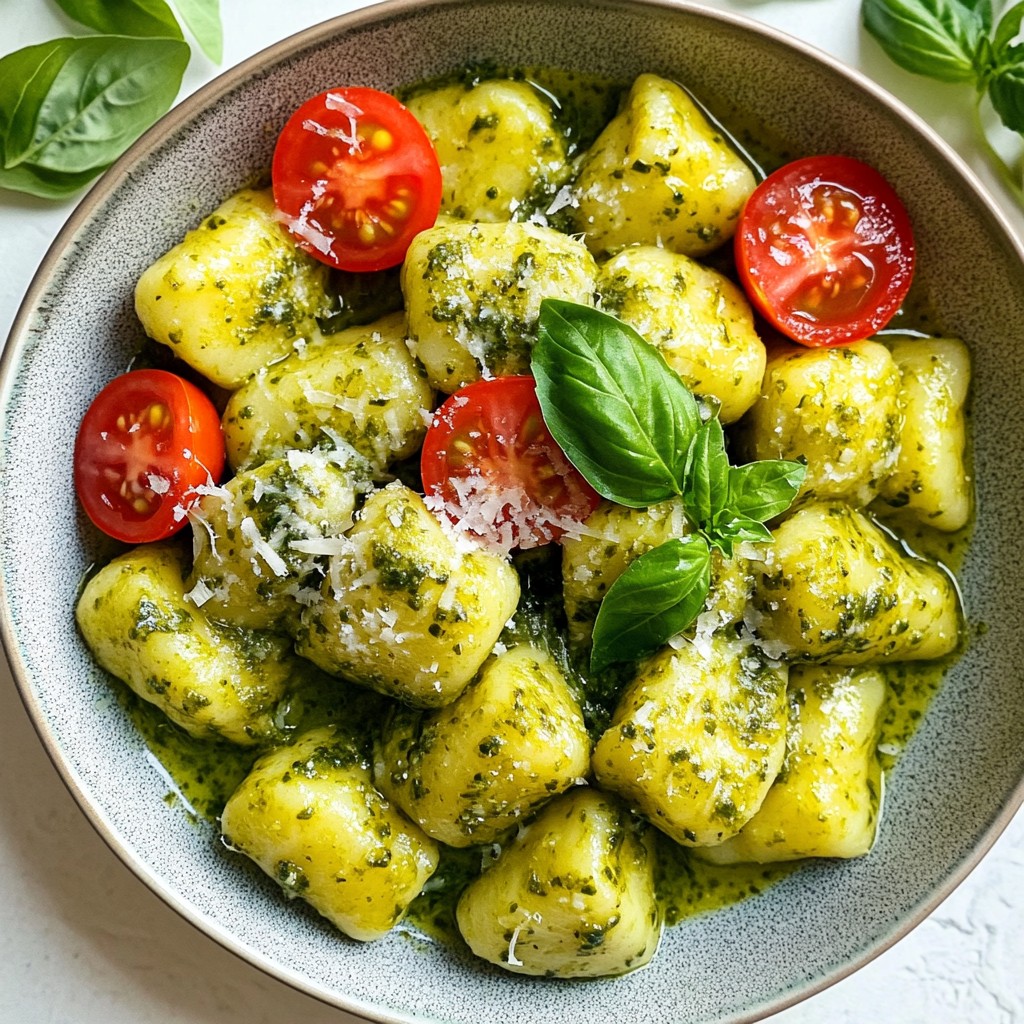Are you ready to spice up your dinner routine? These Spicy Korean Chicken Bowls are not only easy to make but also full of flavor. You’ll love the blend of tender chicken, savory gochujang, and fresh vegetables served over fluffy jasmine rice. Whether you’re a seasoned cook or a beginner, these bowls can be your go-to meal for busy nights. Let’s dive into the ingredients and get started on this tasty adventure!
Ingredients
Main Ingredients
– 1 lb boneless, skinless chicken thighs
– 2 tablespoons soy sauce
– 2 tablespoons gochujang (Korean chili paste)
– Additional vegetables and toppings
The main ingredients give this dish its bold flavor. Chicken thighs work best for their juicy texture. Gochujang adds heat and depth. You can also add veggies like carrots and cucumbers for freshness.
Pantry Staples
– Honey
– Sesame oil
– Garlic and ginger
– Vegetable oil
Pantry staples enhance taste and texture. Honey balances the spice of gochujang. Sesame oil adds a nutty taste. Fresh garlic and ginger bring aromatic flavors. Vegetable oil is great for cooking.
Serving Essentials
– Cooked jasmine rice
– Sesame seeds
– Fresh cilantro and green onions
Cooked jasmine rice serves as a perfect base. It absorbs the sauce well. Sesame seeds add a nice crunch. Fresh cilantro and green onions provide a pop of color and flavor.
Step-by-Step Instructions
Preparation and Marination
To start, gather your marinade ingredients. You will need soy sauce, gochujang, honey, sesame oil, garlic, and ginger. In a large mixing bowl, combine these ingredients. Mix well until they blend together. Next, add the chicken pieces to the bowl, tossing to coat them fully. This step is key. Let the chicken marinate for at least 30 minutes. If you have more time, two hours gives better flavor.
Cooking the Chicken
Now it’s time to cook the chicken. Heat vegetable oil in a large skillet over medium-high heat. Once hot, add the marinated chicken to the skillet. Cook it for about 5-7 minutes. You want it fully cooked and slightly caramelized. After that, take the reserved marinade and pour it into the skillet. Let it simmer for 2-3 minutes. This thickens the sauce and adds great flavor.
Assembling the Bowls
Now, we can build our bowls. Start with a layer of cooked jasmine rice at the bottom. This rice is fluffy and perfect for soaking up the sauce. Next, top the rice with the spicy chicken. After that, add your vegetables. Use julienned carrots, sliced cucumber, and chopped green onions. These add crunch and color. Finally, garnish your bowl with sesame seeds and fresh cilantro. This creates a beautiful and tasty meal.
Tips & Tricks
Achieving the Perfect Flavor
Marinating the chicken is key for taste. I suggest marinating for at least 30 minutes. For the best flavor, try marinating for up to 2 hours. The longer you marinate, the richer the taste. To control spice levels, you can adjust the gochujang. If you like it milder, use less gochujang. For more heat, add a spoonful more.
Cooking Techniques
To cook chicken evenly, cut the pieces into similar sizes. This helps each piece cook through at the same time. Use medium-high heat when cooking. This temperature helps to seal in juices and flavors. For a nice caramelized finish, avoid stirring too much. Let the chicken sit in the pan to develop a golden crust.
Serving Suggestions
Pair your spicy chicken with side dishes like pickled vegetables or steamed broccoli. These add freshness and balance the heat. To make it a complete meal, serve the chicken over cooked jasmine rice. Add carrots, cucumbers, and green onions on top for crunch and color. For more flavor, sprinkle sesame seeds and fresh cilantro as a garnish. Enjoy your tasty dish!

Variations
Protein Alternatives
You can use chicken breast instead of thighs. Chicken breast is leaner. This change lowers fat but keeps the dish tasty. If you want a plant-based option, try tofu or tempeh. Both soak up flavors well and add a nice texture.
Additional Ingredients
You can mix in other vegetables. Bell peppers, snap peas, or broccoli work great. They add color and crunch. For sauces, try adding peanut sauce or teriyaki sauce. These will give your bowl a new twist. You can also add toppings like avocado or radishes for extra flavor.
Flavor Twists
Consider adding nuts or seeds for a crunchy bite. Toasted sesame seeds or chopped peanuts are perfect. You can also try different spices. Adding garlic powder or smoked paprika can change the flavor profile. This way, you create a new dish every time.
Storage Info
Refrigeration
Store leftovers in an airtight container. This keeps them fresh and tasty. They last up to three days in the fridge. If you want to keep them longer, consider freezing them.
Freezing
To freeze portions, let the chicken cool completely. Then, use freezer-safe bags. Remove as much air as possible. The chicken lasts up to three months in the freezer. When you’re ready to eat, thaw it overnight in the fridge.
For reheating, place the chicken in a skillet over medium heat. Stir until warmed through. You can also microwave it for 1-2 minutes, checking to avoid overcooking.
Meal Prep Ideas
You can prepare some ingredients in advance. Chop your vegetables like carrots and cucumber the night before. This saves time on busy days.
For quick assembly, cook extra rice and chicken. Store them in separate containers. When you’re ready to eat, just combine everything in a bowl. Enjoy your easy meal in minutes.
FAQs
What can I substitute for gochujang?
If you don’t have gochujang, you can use other chili pastes or sauces. Sriracha is a good option. It has heat but lacks some depth. You can also mix miso paste with hot sauce. This gives a rich flavor. Another choice is a mix of red pepper flakes and soy sauce. Each substitute will change the taste a bit.
Is this recipe spicy?
Yes, this recipe is spicy due to gochujang. However, you can adjust the spice level. If you like mild dishes, use less gochujang. Start with one tablespoon instead of two. Taste the marinated chicken before cooking. You can always add more spice later.
Can I make it gluten-free?
Yes, you can make this dish gluten-free. Use gluten-free soy sauce instead of regular soy sauce. Check the gochujang label for gluten-free options. You might also consider tamari as a substitute. It provides a similar flavor without gluten. Enjoy your tasty meal while staying gluten-free!We covered ingredient details, cooking tips, and storage advice. You learned how to marinate and cook chicken, assemble tasty bowls, and customize flavors.
In the end, this meal is simple, fun, and adaptable for everyone. Enjoy experimenting with different proteins and vegetables to create your perfect bowl.




